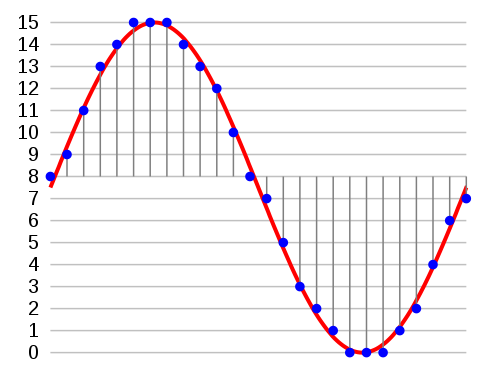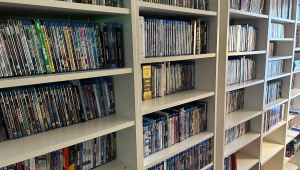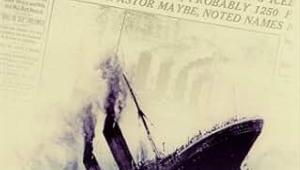the time (we called them LPs back then, or simply just records). But CDs caught on like wildfire, threatening and then exceeding LPs dominance. Who knew then that vinyl would, one day, actually turn the tables and outsell CDs. (That statistic, however, is skewed since it refers to total sales revenue for new vinyl, not simply the numbers of discs sold. New vinyl today costs double, or more, than the corresponding CD release. But current vinyl sales are nevertheless impressive. It also helps that used vinyl itself is a significant market.)
https://core-ball.org/
Digital Follies

When the CD (now a 40-year old format!) was first introduced it arrived to a mixed reception. I was an early adopter and stationed in Germany at the time. CDs arrived in Europe shorty before they hit the USA side of the pond, so they were readily available to me on my occasional Saturday forays into Frankfurt. (I also once attended a relatively modest Hi-Fi show in that city, which much later morphed into the current and huge annual Munich event).
My first CD player was also Sony's first CD spinner, and when I first fired it up with my first CD I was...confused. The late J. Gordon Holt, then the editor of the then-intermittent Stereophile, had already gushed over the new format as he heard it on that same Sony player. I suspected that Gordon's then-current music system must have been better suited to the format than mine.
Vinyl recordings were king at the time (we called them LPs back then, or simply just records). But CDs caught on like wildfire, threatening and then exceeding LPs dominance. Who knew then that vinyl would, one day, actually turn the tables and outsell CDs. (That statistic, however, is skewed since it refers to total sales revenue for new vinyl, not simply the numbers of discs sold. New vinyl today costs double, or more, than the corresponding CD release. But current vinyl sales are nevertheless impressive. It also helps that used vinyl itself is a significant market.)
That first CD of mine sounded merely okay, though rather cold and icy. But the format gradually improved as early mastering errors were ironed out. Nevertheless, among its early and later naysayers (a small but vocal minority) digital audio has never managed to completely shake its original reputation. Many audiophiles (unlike the general public) have never entirely warmed to the digital music revolution.
Digital audio (we'll stick to PCM here, the most common form) can only exist by slicing up the source into pieces that can be manipulated as needed and either used immediately or stored for later reassembly into analog. Audio playback, or at least the loudspeakers, remains primarily analog. But isn't our hearing, at least in one respect, akin to digital? It may be analog up to the cochlea (the inner ear), which consists of thousands of tiny hairs, each responding to a specific frequency or frequency range that the brain reassembles into what we perceive as sound. I've always wondered (on the video front, though the analogy is also valid for audio) exactly what E.T. (in the movie) actually saw when he experienced a human television for the first time! It was likely very different from what we experience from the identical stimulus.
A Quick Tutorial
Some of the following will be very familiar to long-time audio fans, but a summary here might be useful for newbies. As noted above, digital audio carves analog sound into tiny slices, but how this is accomplished can vary. On a conventional CD the audio is split into 44,100 slices, or samples, every second. Each sample is then represented by string of 16 "bits," each of them either a zero or a one.
Why 44,100?
According to a fundamental tenet of digital audio, the Nyquist-Shannon theorem, for the maximum desired frequency to be digitally stored and then reassembled later without perceptible losses you need at least twice as many samples as the maximum frequency you plan to store. Since our hearing (for a 2-year old at least!) has a useful extension up to 20kHz, sampling at 44,100 samples per second (44.1kHz) should be sufficient to cover the range of human hearing. Why the extra 4.1kHz? I dunno; perhaps it offers a bit of extra headroom. The digital sampling is done by an analog to digital converter (ADC) and the reconstruction by a digital to analog converter (DAC).
While 44.1kHz and 16 bits are used for a large percentage of consumer digital audio, there are audio discs (and on-line, downloadable music streams) that up the ante to higher bit rates, "deeper" bit depths, or both. I'm sure this isn't news to most readers, but for those new to the party these "high-rez" releases are said to offer quality superior to plain vanilla CDs. I'll leave that to the individual to determine, but it's always been my position that the most important factor in any recording once you reach a minimum, at least, of CD quality, is the original source recording itself — the venue, the musicians, how the recording engineer handles the microphone setup, the mix, EQ, and dozens of other factors. A bad recording can't be improved much, even with a 96kHz, 24-bit release.
When DVD and, later, Blu-ray came along, the bit-storage capacity of digital discs increased dramatically. This extra space was needed for video, but the multichannel soundtracks on audio-video Blu-rays also profited and can be as high as 196 kHz at 24 bits (source, Quora discussions). Does that include every channel on the most multichannel-laden discs. I suspect so (particularly since surround and Atmos channels aren't always fully engaged), but this information isn't typically available (or trustworthy if it is), for multichannel recordings.
How Digital Compression Works
That leads us to the important subject of digital compression (to fit the sampled files into the available storage or transmission space, such as the capacity of an audio disc, audio-video disc, or a streamed music or movie file). This is an entirely different subject than dynamic compression (Google "Loudness Wars if you have all afternoon!). With digital compression it's possible to discard data in a music file prior to releasing it to the public, with the resulting degradation said to be either inaudible or unimportant to the listener. That's because some detail is always masked by other aspects of the sound and, in theory, these masked details are wasting storage space and can therefore be deleted.
Compression codecs exist to take advantage of this, deleting "inaudible" detail as it occurs, microsecond by microsecond. Bluetooth, for example, reduces the raw recorded data rate dramatically. This cut and slash technique is less likely to be used on packaged media, where the available storage space is usually more than adequate. But for streaming an uncompressed file can be unwieldy. Digital storage or transmission space, like time, is money.
Such compression, particularly if done without the listener's knowledge, can be a serious concern for audiophiles who want the best possible sound and is an important subject for home theater fans as well. And as streaming continues (unfortunately) to threaten the future of physical music and movie discs, compression could seriously impact home theater enthusiasts as well. What we hear can be no better than the source material provides.
- Log in or register to post comments


Azul é mais do que uma cor, é uma experiência. Descubra com Blue WhatsApp. Motel blue moon whatsapp


Great article, Tom! I always wonder about whether there are analogs to compression on a vinyl record that affect sound quality on that format. For example, the needle has mass, resonant frequencies, etc. that may affect its ability to track the groove on the record. Even the physical size of the needle affects what it can track - the needle cannot enter a valley on the record track that is smaller than the needle. As another example, are there limits to how frequencies that can be molded into the vinyl? Going a step further, it seems that the physical structures on the record for certain high frequency sounds would be so delicate that they would be destroyed by the needle after just a few plays of the record.

Hi,
@Old_Ben, Your right. Do a search on RIAA curve or RIAA equalization. This will address some of the things you've presented in your post.

There are a couple of errors in this article.
Compression is not always lossy - there's a lot of redundant or unnecessary information in an uncompressed PCM file (for example, if half of each 16-bit word consists of zeros, you can truncate that data and then put the zeros back when you rebuild it). A format like FLAC or WMA Lossless discards only data that is not necessary to accurately reconstruct the waveform, and will give you a final result that's bit-perfect and identical to the original PCM file.
Also, Bluetooth is not a compression algorithm, which you imply in this article. Bluetooth is a protocol for streaming all kinds of different data wirelessly between devices. There are many different kinds of audio codecs that can be used over Bluetooth, some of which, especially with older revisions of the Bluetooth spec, are lossy, and some of which can use Bluetooth 5.0's higher bitrate to stream lossless audio. AptX Lossless, for example, will deliver bit-perfect audio over Bluetooth. The only catch is that both the transmitter and receiver need to support AptX Lossless - if your phone supports it but your receiver doesn't, for example, your phone will drop down to an older codec like LDAC.

Excellent corrections, SuicideSquid

CD-quality audio perfectly reproduces the analog waveform. There is no loss, and the waveform is not "sliced up." The Nyquist-Shannon Theorem proves this. If you want an excellent video detailing how it works, search for "Technology Connections Nyquist" on YouTube.
This is of course a separate issue from DRC or lossy compression. Digital audio *can* be bad. But it isn't bad due to any intrinsic fault in the technology, rather due to poor choices in encoding.

The Whittaker-Nyquist-Shannon theorum requires a perfect sinc function be performed on every single sample then summed into a continuous function with all the other samples. A finite input into a perfect sinc filter will generate an infinite output both before and after the sample, which is literally not possible. Since the theorum requires something impossible in the real world, your whole argument falls apart.
Infinity is fine in math (which is what the Whittaker-Nyquist-Shannon theorum is, a math proof), and common in calculus (think functions whose limit approaches infinity). In reality, infinity is... incredibly rare or non-exisitent. With a perfect sinc filter, you press play and nothing comes out of your speakers. Ever. Even after the heat death of the universe you'll still be waiting because... infinity.
FYI, I'm a recording engineer and a biochemist. Weird combo, I know. I can tell you that what comes out of the mixer and what comes out of the recorder (digital or analog) always sound different. Unless you mix "in the box" but that has its own sound too (and no recording sounds like what comes out of the mic pre-amp). The A/D/A process changes the sound, but is far less susceptable to entropy than analog (which also changes the sound). Yes, I just put the 2nd Law into a conversation about audio and stayed on topic (twice!) :D
N.B. to Mr. Norton - no, I didn't read the article though I assume it's well written. Came to the comments because I knew someone would say "nuh uh" after seeing the graphic and headline.
Mark Phillips.

In the video mentioned above, the waveform is reproduced perfectly when an analog signal going into the ADC and coming out of the DAC goes through a low pass filter and is thus band limited. I suggest watching it. He demonstrates it pretty convincingly.

In a signals and systems class you might do some of the actual math to digitize and reconstruct an analog signal. The math can go back and forth from analog to digital and back again perfectly every time.
The really, really hard part is implementing a real world DAC that can do that. One of the problems, time from minus infinity to plus infinity, is mentioned above. All of those tradeoffs produce artifacts or leave things out. What we like or don't about certain DACs has to do with the designer's tradoff decisions.
It's similar to the challenges of making the transition from an electrical signal to a physical geometric surface back to an electrical signal that a cutting lathe and a phono cartridge have to negotiate. Or from an electrical waveform to an acoustic waveform that our speakers produce.
DACs have improved quite a lot since the early days of CDs.
But back in the day, quadrophonic LPs demonstrated that the media had a lot more bandwidth for detail than two channels of 20-20kHz. We're also a lot better at pulling out those details in two channel LPs today than 40 years ago.
My CDs have never sounded better, and my LPs have never sounded better.
Cool stuff.

Fascinating insights into the evolution of digital audio and the impact of compression. As a longtime audiophile, the nuanced history of CDs resonates. The balance between sampling rates and human hearing is crucial. The discussion on compression and its implications for streaming heightens awareness. Source quality remains paramount. Looking forward to more in-depth exploration. https://paybyplatema.site/

I am extremely impressed with the exceptional quality and craftsmanship of the geometry dash 23 product. It is evident that great attention to detail and durability were prioritized during its construction. This product is built to withstand the test of time.

The evolution of digital audio and the influence of compression are captivating. As an avid audiophile, the intricate CD history strikes a chord. Balancing sampling rates with human hearing matters. Discussing compression's streaming impact raises awareness. Source quality stays vital. Eager for deeper dives ahead. https://myolsd.top/

Vinyl is still the best! I personally think that Digital can never outcompete it. Our new office soundsystem at Gutter Cleaning Stoke-on-trent is all vinyl-based, and the sound is so crisp. You simply can’t beat analog on quality.

FMWhatsApp may allow users to send larger files, such as videos, documents, and audio files, compared to the official WhatsApp app fm whatsapp. This can be beneficial for users who frequently share media files with their contacts, such as photographers, designers, or content creators.

Switch ROM are ROM files of Nintendo Switch games. You can play popular new games with Switch ROMs using the Nintendo Switch emulator on your computer or mobile phone. Download the latest Switch ROM version today!

Romsfun.me is the world's leading free roms Download website with a vast collection of roms for many different consoles and arcades. The website has a friendly, easy-to-use interface, allowing for easy searching and downloading of roms. Romsfun has more than 50,000 roms for more than 50 systems such as NES, SNES, Sega, PlayStation, Nintendo DS, Game Boy... roms are thoroughly tested, virus-free to ensure quality. Users can download ROM quickly and at high speed without registration. Romsfun regularly updates new roms, allowing players to download a variety of roms for many different game genres. With diverse content and convenience, Romsfun deserves to be the best place to download free Roms today.

EmulatorGames.net is a popular website for retro gaming enthusiasts who want to relive classic games from consoles such as the Game Boy Advance (GBA), Super Nintendo Entertainment System (SNES), PlayStation 2, PSX, PS3, Nintendo 64 (N64), SEGA Genesis, NES, and PlayStation, and many others. The site offers a comprehensive collection of ROMs, and digital copies of games, for various consoles that can be downloaded and played using an emulator. Emulators are software that mimics the hardware of these classic consoles, allowing you to play old games on modern devices like PCs, tablets, and smartphones.

Are you a fan of retro gaming? Do you miss the classic games from your childhood? Look no further than CoolROM, your ultimate source for ROMs, emulators, and classic games. CoolROM is a renowned platform that allows you to relive the nostalgia of gaming's golden age by providing a vast collection of games from various consoles and handheld devices.

Indians love watching movies in a variety of languages, from Hindi to Tamil, Telugu, and more, thanks to the rise of online streaming platforms. Sites like ibomma hindi movies have become quite popular, offering easy access to a vast collection of Hindi-language films.
This allows viewers to enjoy their favorite movies without waiting for TV broadcasts or theater releases, making entertainment more convenient than ever. Whether it's the latest Bollywood hits or classic regional films, online movie watching has become a favorite pastime for many.

To legally rent out your property to visitors, it's essential to get a vacation rental license. This license ensures your property meets the necessary safety regulations and allows you to operate within the law. The application process often includes an inspection and a fee, but once you have the license, you can start welcoming guests and earning income from your vacation home without any legal worries.

Airbnb host licensing requirements vary depending on the location, as each city or region may have its own rules regarding short-term rentals. These regulations are designed to ensure that properties meet safety standards and that hosts comply with local laws, including zoning, taxes, and occupancy limits. In many places, hosts are required to apply for specific permits or licenses before listing their properties on Airbnb. Failure to adhere to these licensing requirements can lead to fines or even the removal of a listing from the platform. It’s essential for hosts to familiarize themselves with their local Airbnb host licensing requirements to avoid any legal issues.

XZROMs is a site for downloading thousands of game ROMs for free. All games work using emulators on PC, Mac, Android, and iOS.

ROMs - Download your favorite Nintendo Switch ROMs in NSP and XCI formats for Console and Emulators such as Suyu, Ryujinx, Sudachi, Egg NS, Yuzu, and more for free.

eHallPass is an innovative digital platform designed to streamline the process of managing hall passes in educational institutions.
ehall pass

It is essential that you obtain a vacation rental license in order to lawfully rent out your property to guests. With this license, you can operate safely and be assured that your property complies with all safety requirements. After completing the application process, which frequently involves an inspection and a charge, you can start leasing out your vacation property and taking in cash without fearing about the law.

The ever-evolving world of stock trading offers numerous opportunities for investors to capitalize on emerging trends. One company that has consistently drawn attention is Uber, with its stock performance often reflecting the broader shifts in the tech and transportation industries. Investors have turned to various sources for detailed analysis, and Fintechzoom com insights have become a go-to for understanding the company’s financial landscape. These reports offer a comprehensive view of Uber’s market position, helping investors gauge the potential risks and rewards associated with its stock.

For investors seeking advanced tools and market intelligence, fintechzoom. com offers a range of benefits. The platform provides access to real-time data, financial reports, and expert analysis, which can help investors make more informed decisions in the rapidly evolving fintech landscape. It also features detailed coverage of emerging technologies like blockchain and cryptocurrency. However, the subscription fee might be considered high for casual investors, and the wealth of data available can be overwhelming for those new to the field. Ultimately, it’s a valuable resource for experienced investors but may not be necessary for beginners.

The evolution of financial technology began with basic digital transactions and has grown into a dynamic landscape of AI, blockchain, and mobile solutions. These advancements have improved transaction speed, enhanced security, and broadened access to financial services. The journey continues to redefine global finance.

When it comes to indulging in creamy, flavorful shakes, few places offer as much variety and satisfaction. From classic chocolate and vanilla to inventive seasonal options, each sip is a treat for your taste buds. The best shakes at jackbox are crafted with high-quality ingredients, ensuring a perfect balance of sweetness and texture. Whether you're in the mood for a nostalgic favorite or something new and exciting, these shakes complement any meal or make for a delightful standalone dessert. Don’t forget to pair one with your favorite snack for the ultimate experience!

Telugu movie lovers can enjoy a wide range of films that cater to diverse tastes and genres. Platforms like iBomma offer an extensive collection, making it easy for viewers to stream or download their favorite content. Ibomma movies are especially popular for their high quality and regularly updated library, featuring everything from action-packed blockbusters to heartfelt dramas. The platform’s simplicity and variety have made it a go-to choice for many fans. However, choosing legal streaming options is important to support the film industry and its creators.

Innovative learning platform myolsd was built to make the learning process better and faster for teachers, students, and institutions. There are many technologies and features built into it that make it easy to manage student information, academic materials, and communication in the educational ecosystem. Its goal is to create a more personalized, engaging, and collaborative learning space where all students can do well.

FintechZoom offers expert insights into the world of financial technology, covering everything from digital banking to cryptocurrency trends. Must visit: https://ffintechzoom.com/.

Renaissance themed Dress to Impress codes offer a glimpse into the elegance and artistry of fashion from the 14th to the 17th century, blending history with timeless style. To embrace this look, focus on rich fabrics like velvet, silk, and brocade, paired with detailed embroidery and lace. Women can opt for flowing gowns with corsets, puffed sleeves, and intricate bodices, while men can choose doublets, breeches, and cloaks adorned with gold accents. Accessories like feathered hats, jeweled belts, and pearl necklaces complete the look. Whether for a themed event or simply exploring the charm of the past, Renaissance attire celebrates creativity and sophistication.

The accessibility of Futbol Para Todos across devices makes it a preferred choice for football enthusiasts. Whether on mobile or desktop, you can enjoy uninterrupted coverage at futbolparatodos.

The accessibility of Futbol Para Todos across devices makes it a preferred choice for football enthusiasts. Whether on mobile or desktop, you can enjoy uninterrupted coverage at https://futbolparatodoss.org/.

Con Futbollibres, nunca te perderás un detalle sobre los resultados y estadísticas de tus ligas favoritas. Visita https://futbollibress.com/ para acceder a información actualizada y comparar el rendimiento de equipos y jugadores.

Calculadora Alicia es una plataforma innovadora que ofrece diversas herramientas de cálculo en línea, diseñadas para hacer tu vida más fácil y eficiente. https://calculadoraalicia.net/

Modern e-cigarettes have evolved into sleek, high-performance devices that offer a smoother and more customizable experience. With advancements in coil technology and battery life, users can enjoy richer flavors and denser clouds without frequent recharging. Disposable options like the Fumot 12000 provide convenience with long-lasting puffs and a variety of flavors, making them a popular choice for those who want hassle-free use. Whether you're a beginner or an experienced user, selecting the right device depends on factors like nicotine strength, airflow control, and personal preferences.
































































